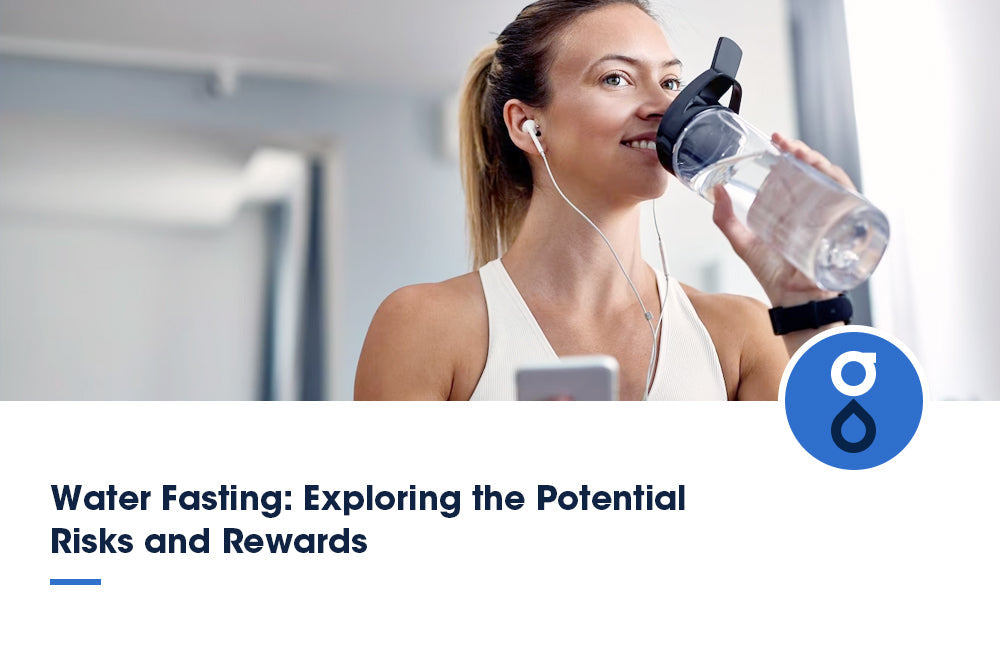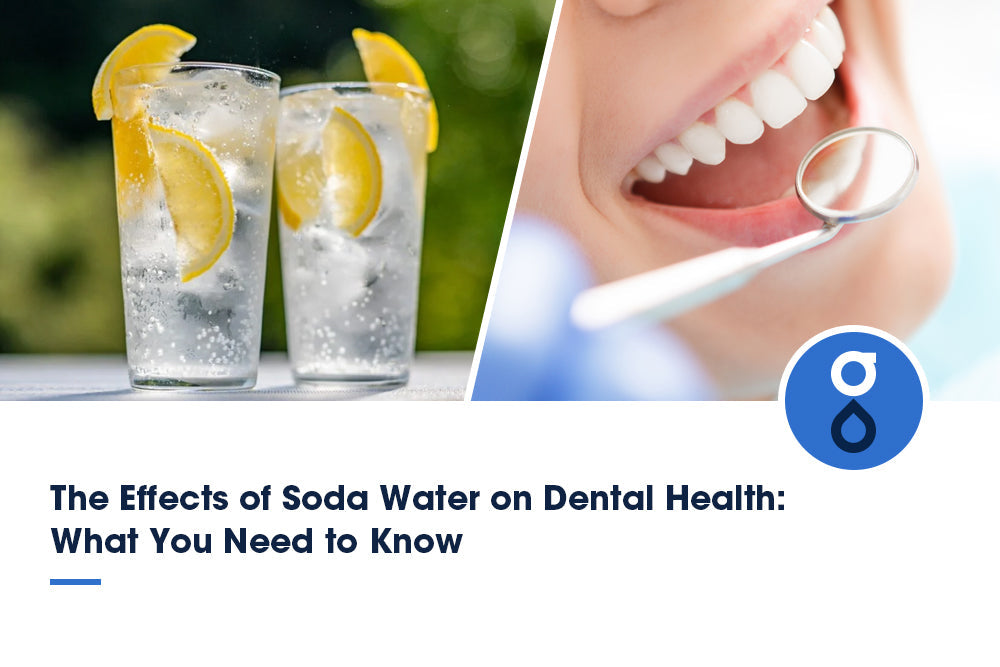Table of Contents:
Understanding water fasting: how it works
Potential benefits of water fasting
Potential side effects of water fasting
Tips and precautions for safe water fasting
Alternatives to water fasting: exploring other detox methods
FAQs
Conclusion
Are you looking for a way to detoxify your body and lose weight quickly? Water fasting may be the answer you're searching for. This fasting method involves consuming only water for a set period, typically ranging from a few days to several weeks. While water fasting can offer numerous benefits, it's also important to be aware of the potential risks.
In this article, we'll explore the ins and outs of water fasting, including how it works, the potential benefits, and the potential side effects. We'll also provide tips and precautions for safe water fasting and discuss alternatives to water fasting for those who may not be suitable candidates for this method.
Understanding water fasting: how it works

Water fasting, also known as water cleanse or water detox, involves abstaining from all food and drinks except water for a certain period. Water fasting aims to detoxify the body, promote weight loss, and improve overall health.
During a water fast, the body enters a state of ketosis, which means it starts to burn stored fat for energy instead of glucose from food. This process can lead to significant weight loss but can also cause side effects such as fatigue, dizziness, and nausea.
Potential benefits of water fasting
By abstaining from food and only consuming water, you may experience a range of positive effects on your physical and mental health. One potential benefit of water fasting is weight loss. Since you're not consuming any calories, your body will begin to use stored fat as fuel. This can lead to a significant reduction in body fat and overall weight loss.
Another potential benefit of water fasting is improved insulin sensitivity. When you don't eat for an extended period, your body becomes more sensitive to insulin, which can help lower blood sugar levels and reduce the risk of developing diabetes. Water fasting has also been shown to reduce inflammation, a common underlying factor in many chronic diseases.
Potential side effects of water fasting
Dehydration

You may feel like skipping meals is a quick and easy way to shed some pounds, but without proper hydration during a fast, your body can become severely dehydrated and put your health at risk.
Water fasting involves consuming nothing but water for an extended period, which can lead to electrolyte imbalances and dehydration. You are at risk of dehydration when you deprive your body of food and do not replace the lost fluids.
Dehydration can lead to various health problems, such as dizziness, fatigue, low blood pressure, and fainting. Your body needs water to function correctly, which can have serious consequences when you don't consume enough.
Nausea and headaches

Nausea and headaches are common side effects of water fasting, especially during the first few days when your body is adjusting to the sudden change in diet. You might also experience dizziness, lightheadedness, or weakness, indicating that your body struggles to cope with the lack of energy.
While it's normal to feel uncomfortable during a water fast, paying attention to your body and its signals is essential. If you start feeling excessively nauseous or experience severe headaches that don't go away, you may need to break your fast and gradually reintroduce food back into your diet.
Electrolyte imbalance

Electrolyte imbalance can be a severe concern during extended periods of restricted caloric intake, as the body may be unable to maintain a proper balance of essential minerals and nutrients. Electrolytes are minerals such as sodium, potassium, magnesium, and calcium necessary for proper bodily function. During a water fast, electrolyte levels can become imbalanced due to insufficient intake or excessive loss through urine and sweat.
Symptoms of electrolyte imbalance include muscle cramps, weakness, dizziness, and confusion. In severe cases, it can lead to seizures or even heart failure. To prevent electrolyte imbalance during a water fast, consuming electrolyte-rich foods such as bone broth, coconut water, and leafy greens is essential. A daily multivitamin supplement may also help ensure proper nutrient intake.
Fatigue and weakness
Feeling tired and weak can be a common issue when using prolonged caloric restriction, such as water fasting. This is because your body isn't receiving the necessary fuel to function correctly. Without enough calories, your body will start to conserve energy and slow down its processes, which can lead to feelings of exhaustion and weakness.
In addition to the lack of calories, water fasting can also cause a decrease in certain nutrients that are essential for energy production, such as B vitamins and iron. This can further contribute to feelings of fatigue and weakness. It's essential to listen to your body and rest when needed during a fast and to ensure that you're still getting enough essential nutrients through supplements or by breaking your fast with nutritious foods.
Blood clots

Beware of blood clots during a water fast, as they pose a severe health risk. When you fast, your body goes into a state of ketosis, which can cause your blood to become more viscous. This thickening of the blood can lead to the formation of blood clots, which can be dangerous if they travel to your lungs or brain. Blood clots can cause various symptoms, from mild discomfort to life-threatening complications.
If you experience any of the following symptoms during a water fast, seek medical attention immediately: shortness of breath, chest pain, sudden onset of severe headache, difficulty speaking or understanding speech, or numbness or weakness in your arms or legs. While blood clots are a potential risk of water fasting, they can be prevented by staying hydrated and moving your body regularly.
Tips and precautions for safe water fasting
To ensure the safety of your water fasting experience, it's essential to heed specific tips and precautions. First and foremost, it's crucial to consult with a healthcare professional before embarking on water fast. This is especially important if you have any pre-existing medical conditions or are taking medications. Your doctor can advise you on whether water fasting is safe for you and can monitor your health throughout the process.
Another important tip is to start slowly and gradually increase the length of your fast. It's recommended to acclimate your body to the process before jumping into long-term water fast. Begin with a shorter fast, such as 24 hours, and gradually increase the length of time as your body becomes more accustomed to the process. This will help prevent adverse side effects and allow your body to adjust.
It's essential to listen to your body and stop the fast if you experience any adverse symptoms. These may include dizziness, weakness, or fainting. It's also important to stay hydrated throughout the fast and to break the fast gradually with small, easily digestible foods.
Alternatives to Water Fasting: Exploring Other Detox Methods
Now that you know how to safely water fast, it's time to explore other detox methods to help you achieve your health goals. Water fasting may not suit everyone, especially those with medical conditions or taking medications. Fortunately, many other ways exist to detox your body and improve your overall well-being.
One popular alternative to water fasting is juice fasting. This involves consuming only fresh fruit and vegetable juices for a set period. Juices are packed with vitamins, minerals, and antioxidants that can help flush toxins from your body. Plus, they provide your body with the necessary nutrients to function correctly, unlike water fasting, which can leave you feeling weak and tired.

Another detox method to consider is the elimination diet. This involves removing certain foods from your diet to identify any food sensitivities or allergies that may be contributing to your health issues. By eliminating common allergens such as dairy, gluten, and soy, you may experience improved digestion, increased energy, and clearer skin. This approach can be more sustainable than water fasting and provide long-term health benefits.
FAQs
How long should water fast last for optimal benefits?
The duration of a water fast can range from a few hours to several days, depending on your goals and physical condition. Additionally, the duration of a fast should be tailored to your individual needs and goals.
Is it safe to engage in water fasting if I have a pre-existing medical condition?
If you have a pre-existing medical condition, you must check with your doctor before starting a water fast. Water fasting can strain your body and may not suit everyone. Some medical conditions, such as diabetes or heart disease, can worsen by fasting, so it's essential to ensure your doctor knows your plans.
Is it necessary to consult a medical professional before starting a water fast?
Before embarking on water fast, it's essential to consult a medical professional. They can assess your medical history and current health status to determine whether a water fast suits you. Additionally, they can provide guidance on properly preparing for a fast and breaking the fast safely.
Conclusion
Now that you've learned about the potential risks of water fasting, it's essential to approach this trend cautiously and prioritize your health above all else. While water fasting has many reported benefits, it's crucial to remember that this approach can be potentially dangerous if not executed properly.
Before embarking on water fast, it's recommended to consult a medical professional and discuss any underlying health conditions or concerns. Water fasting can be a powerful tool for improving physical and mental health, but it's not a one-size-fits-all solution. Remember, your health should always be your top priority.
















